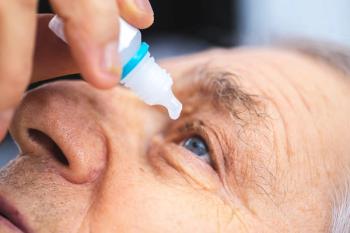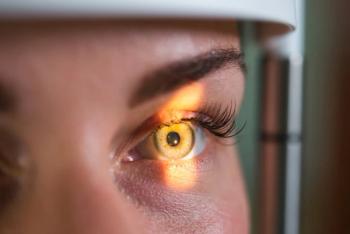
Study finds incidence of microbial keratitis associated with overnight orthokeratology
The incidence was comparable to that of daily wear soft contact lenses.
A recent study found that orthokeratology lenses, which are worn overnight to reshape the
The research team conducted a retrospective multicenter study to determine the incidence of microbial keratitis among Japanese patients wearing orthokeratology lenses, referred to as ortho-k lenses.
This study, which included 1,438 patients (753 males, 685 females; mean age, 12.7 ± 5.4 years), was conducted at 4 hospitals in Japan. All patients had been prescribed the orthokeratology lenses and wore them for a minimum of 3 months.
The investigators collected data from the medical records on patient demographics, lens characteristics, lens care systems and presence of microbial keratitis. They calculated the time that the patients wore the lenses from the fitting date to the patient's last visit, with the total years of lens wear used as person-years of lens wear. The incidence of microbial keratitis was calculated by dividing the number of infected cases by the total person-years of lens wear for all enrolled participants, the authors explained.
The data analysis showed that the mean duration of orthokeratology lens wear was 5.2 ± 4.5 years, and the mean lens power was -3.52 ± 1.41 diopters. The total person-years of lens wear for all patients was 7,415.
Among the study patients, 4 cases of microbial keratitis occurred, for an overall microbial keratitis incidence of 5.4 (95% confidence interval, 1.0–9.8) per 10,000 patient-years.
The investigators commented, “This study represents the largest sample size to date for estimating the incidence of microbial keratitis associated with ortho-k lenses. The incidence was similar to or slightly lower than that of previous studies on ortho-k-related microbial keratitis and also comparable to that of daily wear soft contact lenses.”
Reference:
Hiraoka T, Matsumura S, Hori Y, et al. Incidence of microbial keratitis associated with overnight orthokeratology: a multicenter collaborative study. Jpn J Ophthalmol. 2024; https://doi.org/10.1007/s10384-024-01137-4
Newsletter
Want more insights like this? Subscribe to Optometry Times and get clinical pearls and practice tips delivered straight to your inbox.









































